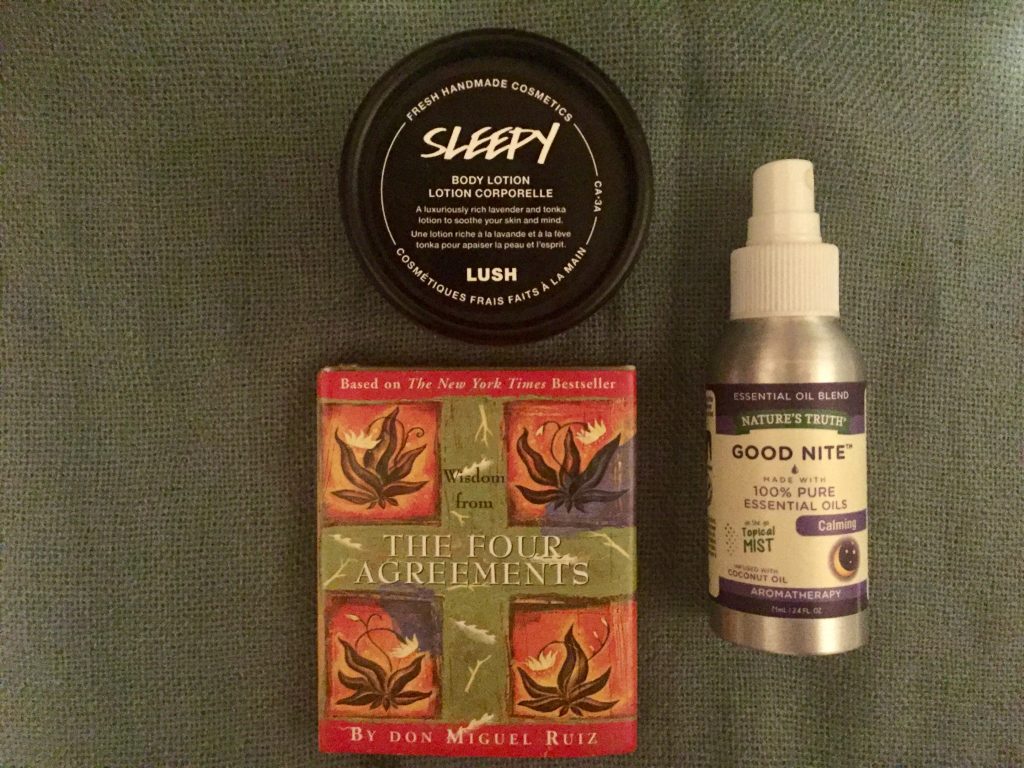Just go to Bed?
 I never was an enthusiastic sleeper.
I never was an enthusiastic sleeper.
As a kid, I never fell asleep at nap time, out of sheer resentment for my day being interrupted. I even remember crawling out of bed to wander downstairs and bother my parents. I read past my bedtime, and I still never take naps (yes, even as a tired university student).
Falling asleep was never my problem; it was (and still is) getting to bed. Dropping whatever I was doing to go lay down for eight hours seemed bothersome, and worth procrastinating.
Still, over the years, I’ve come to understand my sleep habits, and how to convince myself to go to sleep. I used to wonder about how productive I could be if I never had to sleep; I still wonder that, but it’s a thought I (try to) toss off as I bundle into bed. Here are some of my best get-to-sleep tips, from a life-long reluctant sleeper.
1. Tire Yourself Out
The best way for me to get tired for bed, is to be physically tired. It’s not enough for my brain to feel exhausted–that way, I could just over-think my way into staying up way later than I should.
Exercise is necessary enough to my well-being that I always make time for it, even if it’s just a quick workout video before I start on my assignments after classes.
It doesn’t matter if it’s dance, swimming, running or yoga; find a type of exercise you like and stick to it. If you feel restless, it could easily a combination of pent-up energy and stress (and you can diminish at least one of those!).
2. Set a Bedtime Reminder
 If you want to start establishing a more consistent sleep schedule, you’re going to have to make it a routine.
If you want to start establishing a more consistent sleep schedule, you’re going to have to make it a routine.
If I’ve been particularly stubborn about staying up late, I will set a reminder on my phone for getting ready for bed. (Usually it’s something like: “Go to bed now, you’ll regret it tomorrow.”) Setting a reminder 30 minutes before my bedtime allows me to scale back screen time before bed as well.
If it’s exam season and I’m truly burning the midnight oil, I’ll set a reminder for 10 minutes before my bedtime, so I can work as long as possible on my project or paper. (I only recommend this for your busiest weeks.)
3. Go to Bed Now, Get Up Earlier
If you’re anything like me, it can be hard to go to bed with work still unfinished. Sometimes my evenings aren’t as productive as I’ve hoped, and I want to stay up later to keep myself on track.
Resist, my friends! Not only am I more likely to oversleep and be late for class if I stay up late, there’s no guarantee that my 1:00 am work will actually be of quality.
Unless the assignment is literally due tomorrow morning (and if it is, it’s a time management problem), I will put it away when the pace and quality of my work begins to drag. Then, I’ll hit the hay and set my alarm earlier for the next day.
Putting off my work to sleep usually makes me feel more motivated to work on it the next morning, and there’s something about making a hot cup of tea and sitting down to work on something right away that always generates good work, at least for me.
4. Write it Down and Prep for Tomorrow
 If you’re stressed out about setting your work aside for the night, take steps so that you’ll be more prepared the next day. Make a list of all the tasks you still need to accomplish, including anything you have to remember for the next day.
If you’re stressed out about setting your work aside for the night, take steps so that you’ll be more prepared the next day. Make a list of all the tasks you still need to accomplish, including anything you have to remember for the next day.
Check and make sure your wake-up time leaves you enough time to accomplish these (include time for breakfast if you’re a breakfast person), and still get to classes on time. Put any restless feelings to good use and take a couple minutes to tidy your room and pack your notebooks for the next day.
Sometimes I’ll even fill my water bottle at night and stick it in my backpack, so I don’t forget about hydration on a busy morning. If I’m feeling frustrated with any elements of my day, I’ll take a minute to write them down. These simple tasks only take 5 minutes, but in preparing for the next day, I wake up with a plan, instead of with panic.
5. Aromatherapy!
Scent associations are a powerful thing. (Just think of all the times you’ve been taken back to the past through the scent of your old favorite lotion or your mom’s spice mix).
Creating your own scent associations for sleep can help signal your body into knowing it’s time for bed. Lavender is lovely, and forever popular for its calming properties, but if you’re not a fan, try vanilla, tonka, fir or balsam. The scent itself doesn’t particularly matter, only that you only use it when it’s time for bed.
I love to slather on Lush’s Sleepy Lotion and burn my favorite pine candle right before bed. Using scent is just another way to signal that it’s bedtime, and your work can wait until tomorrow when you’re fresh. Sweet dreams!





